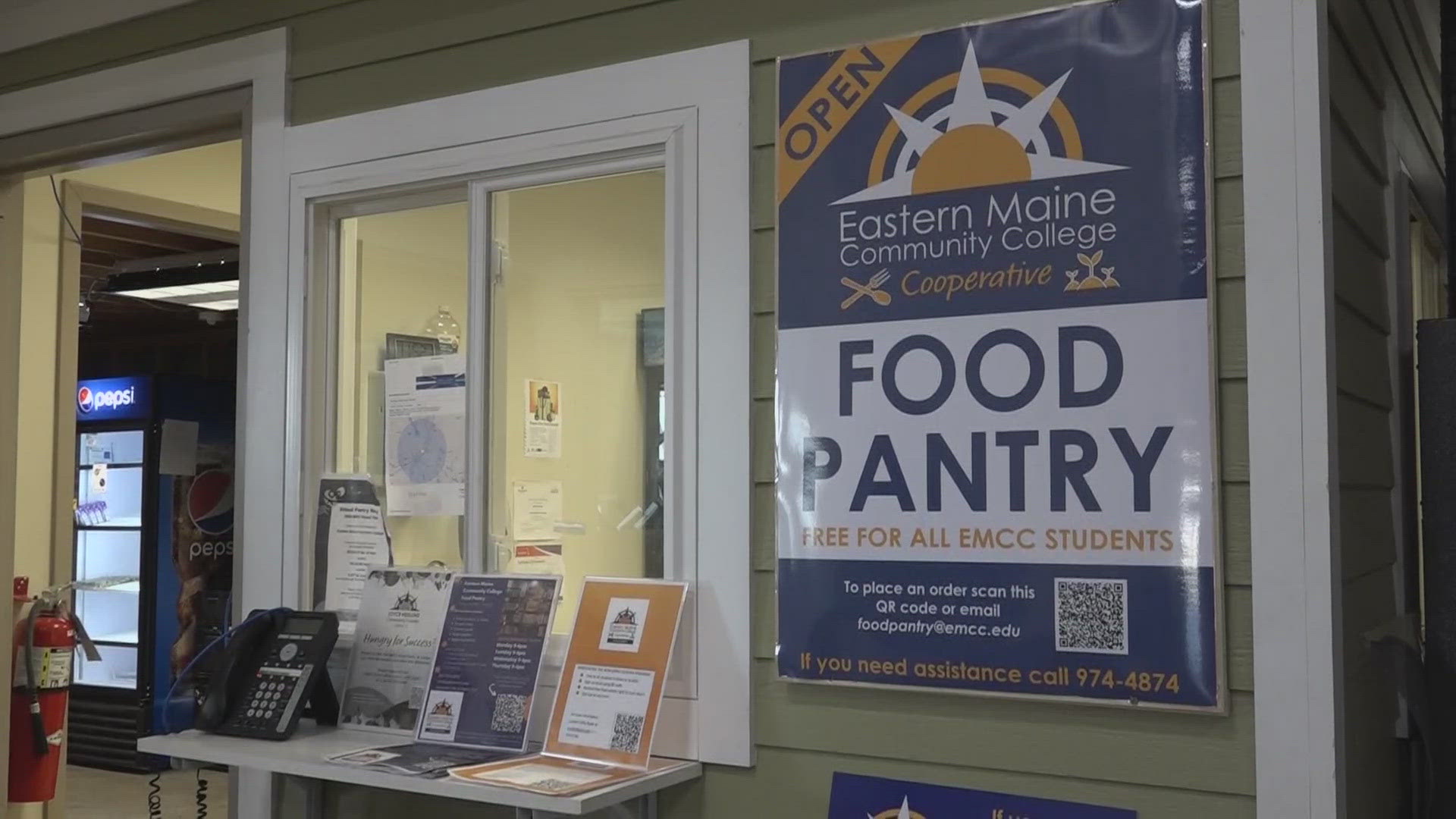BANGOR, Maine — Inside Eastern Maine Community College's Johnston Gymnasium, in what used to be a concession stand, is the school's food pantry.
The goal is to make sure all students have access to free food, and according to staff, a quarter of all EMCC students use the pantry throughout the year.
"Whether they're taking one class or six, they can take advantage of the food pantry," said Mike Schwabenbauer, EMCC's director of TRIO student support services.
Schwabenbauer got involved with the pantry in 2020 and helped grow it into what it is today. "There was a cooler and a shelf in a hallway right outside of my office, and they were given I think $1,000 to be able to stock it," he said. "And now we have this full-service operation."
According to Schwabenbauer, the pantry serves 60 to 70 students a week during the busiest times. From 9 a.m. to 4 p.m. Monday to Thursday, students can pick up canned goods, frozen food, hygiene products, baby supplies, and pet food.
The pantry also stocks fresh meat and produce, much of it coming from EMCC's community garden. The garden was built by AmeriCorps VISTA and EMCC graduate Cathy Ryder. Ryder used the food pantry when she was a student and wants to help people in the same way she was helped in the past.
"This means everything to our students, and I can speak from personal experience, it's extremely hard to study for a test or attend a class when you're hungry," Ryder said.
The pantry offers many ways for students to get food, including curbside pickup and delivering straight to their dorms or anywhere within 10 miles of campus, keeping the pantry accessible and reducing stigma.
"The more you normalize the food pantry on campus, the more often students hear it brought up, the more often they see the signs, the more normal that makes it," Ryder said.
According to Ryder, being greeted by a friendly face can make all the difference. "And then they want to come back because it wasn't as scary as they thought it was going to be," she said.
Organizers are continuing to spread awareness and hope to encourage even more students to use the food pantry.
Said Schwabenbauer, "A lot of our students they work, they have families, they're busy, they're also a student. And if we can have one fewer thing for them to worry about, in this case food insecurity, so that they can be a better student, be a better husband, or mother, or parent, or better employee at their job, then that's kind of what our goal is here."

